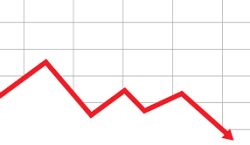

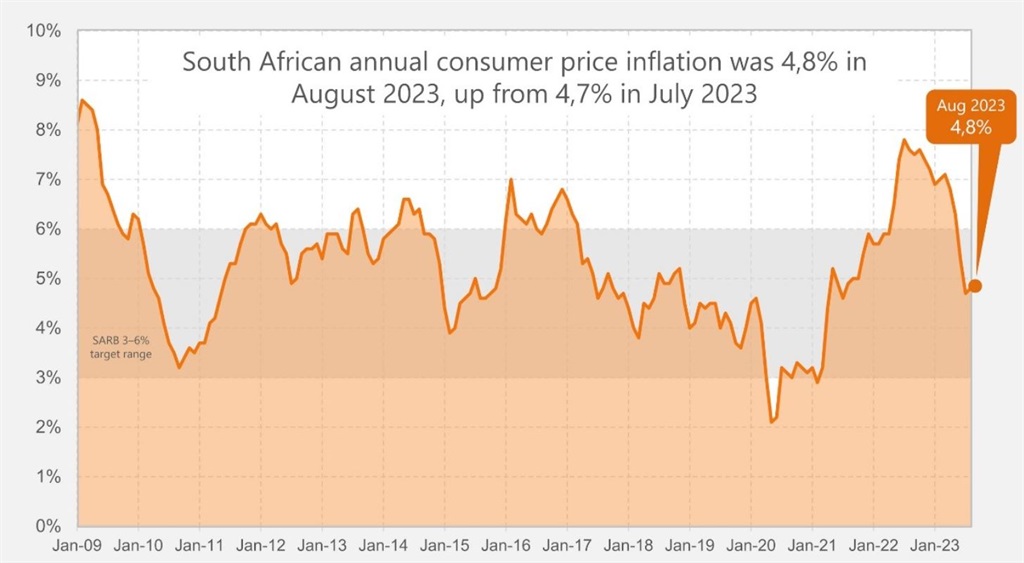
After many months of big hikes, some food prices started to fall, but this was not enough to counteract a rise in fuel prices and increases in municipal tariffs, Statistics SA reported.
A 15.3% annual increase in electricity tariffs pushed inflation higher.
“Households [also] paid 9.6% more for water in 2023 after bearing the brunt of an 8.1% rise the year before. Property rates were up by 8.4% following a 4.3% increase in 2022,” Statistics SA said.
Western Cape residents saw the biggest increases in electricity tariffs (+17%) and property rates (+11%). KwaZulu-Natal (+14.2%) and Gauteng (+10%) were hit by the largest water hikes.
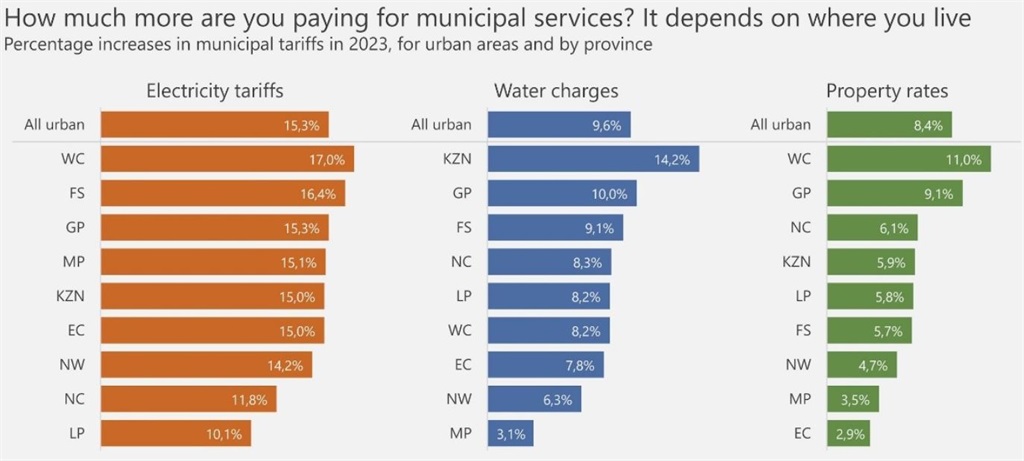
Fuel prices also increased by more than 2% between July and August, adding to the hotter inflation number. In September, petrol and diesel prices were hiked by a large margin, which will add to continued inflation pressures. More fuel hikes are expected in October.
But food inflation cooled for a fifth straight month, from 9.9% in July to 8.0% in August.
Several products were cheaper in August compared with July, including beef, white bread, brown bread, eggs, cheddar cheese, fresh full-cream milk maize meal and cereals. Beer (-0.8%) and wine (-0.3%) prices also declined between July and August. However, rice prices increased by 3.4%, and some other food prices continued to remain hot:
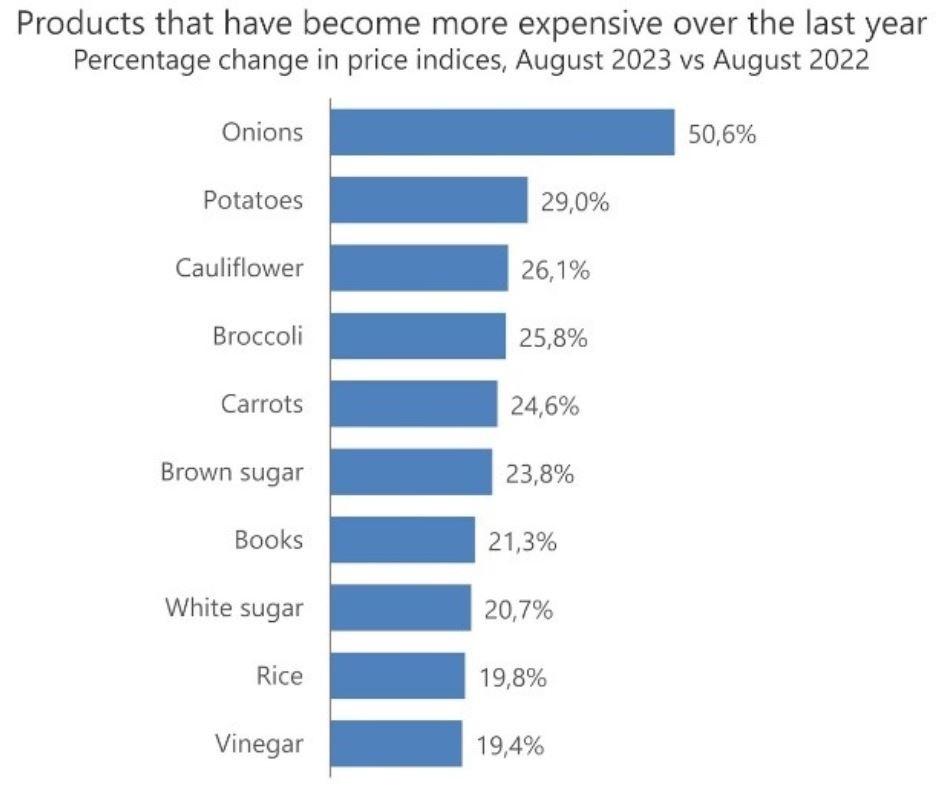
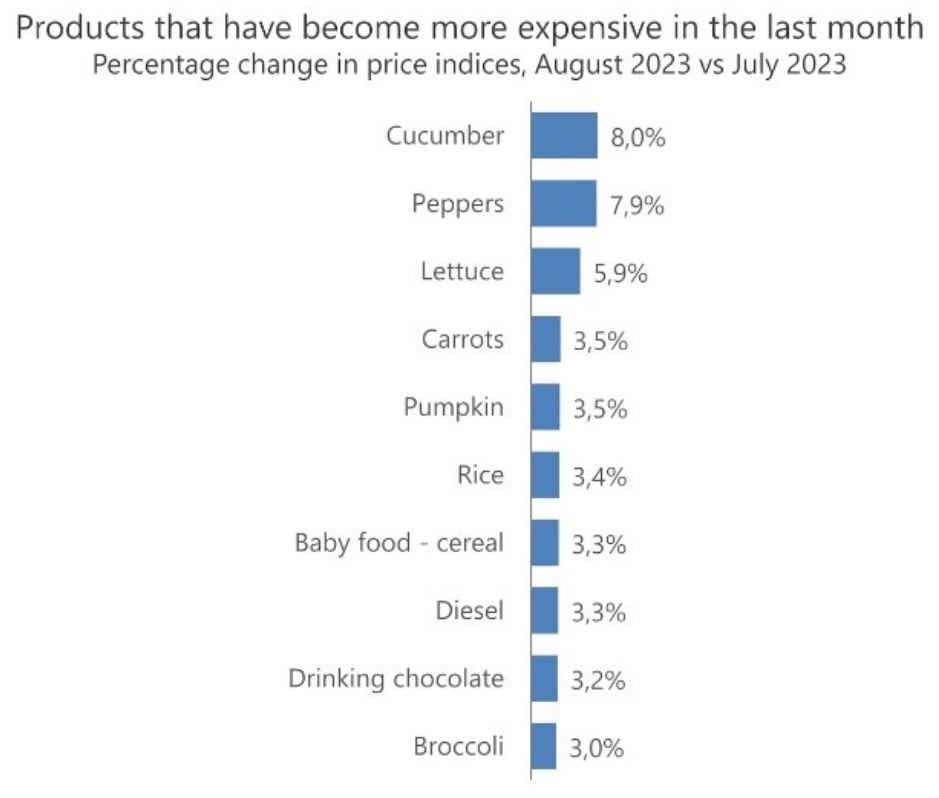
The monthly change in the consumer price index (CPI) was 0.3%, down from 0.9% in July.
On Thursday, the monetary policy committee will announce its interest rate decision. A change is not expected. – news24.com
Sorry. No data so far.

